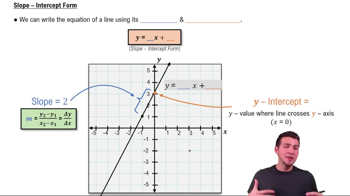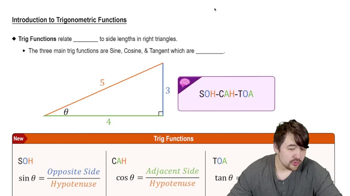Here are the essential concepts you must grasp in order to answer the question correctly.
Limits
A limit is a fundamental concept in calculus that describes the behavior of a function as its input approaches a certain value. In this case, we are interested in the limit of the expression as x approaches 0. Understanding limits is crucial for evaluating functions that may not be directly computable at specific points, especially when dealing with indeterminate forms.
Recommended video:
Indeterminate Forms
Indeterminate forms occur when the direct substitution of a limit results in an undefined expression, such as 0/0 or ∞/∞. In the given limit, substituting x = 0 leads to the form 0/0, which requires further analysis, often using techniques like L'Hôpital's Rule or algebraic manipulation to resolve the limit and find a meaningful value.
Recommended video:
Trigonometric Limits
Trigonometric limits involve the evaluation of limits that include trigonometric functions, such as sine and cosine. In this problem, the expression includes cos(x), and understanding the behavior of cosine near 0 is essential. Notably, the limit of (1 - cos(x)) as x approaches 0 can be simplified using trigonometric identities or Taylor series expansion, which is key to solving the limit.
Recommended video:
Introduction to Trigonometric Functions
 Verified step by step guidance
Verified step by step guidance Verified video answer for a similar problem:
Verified video answer for a similar problem:



 5:21m
5:21m